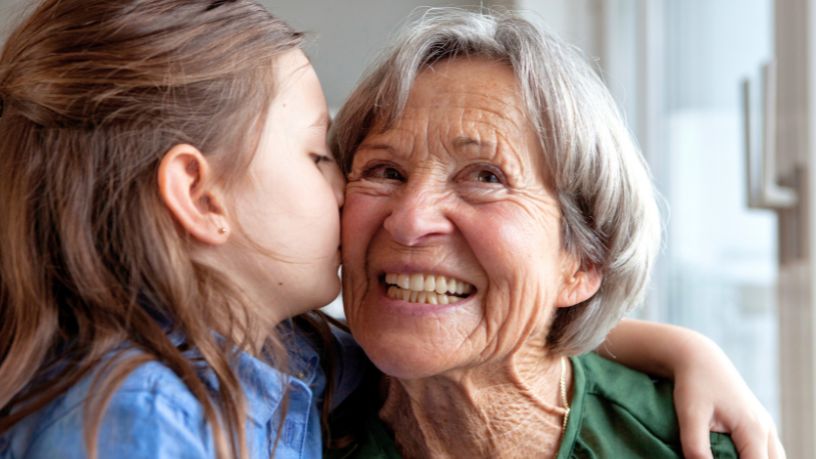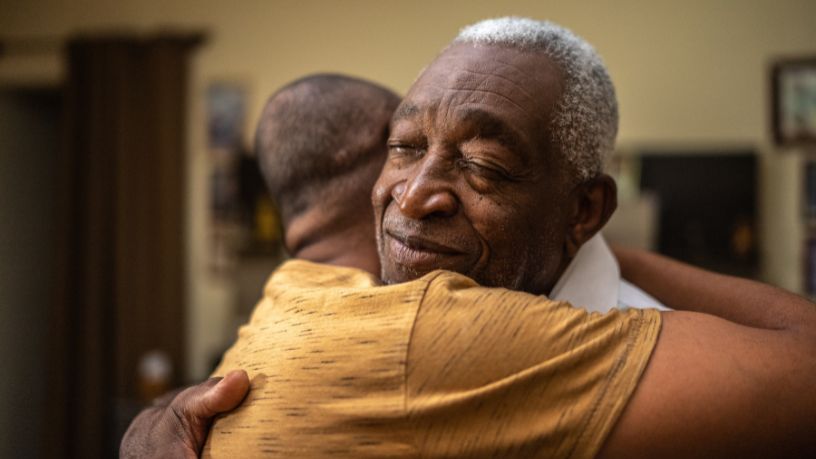Some forms of cancer treatment can cause oral health problems.
On this page
Key takeaways
Side effects can include infection, bleeding gums and even tooth decay.
Your treating team can offer support and advice about how to keep your mouth healthy during and after treatment.
Cancer treatments can cause a range of physical and mental side effects. Among these can be an impact on your oral health. Being aware of how treatment could affect your mouth and teeth can help you get ahead of any potential issues.
How does cancer treatment affect the mouth?
It's not uncommon for some cancer treatments to affect mouth health.1
"Unfortunately, chemotherapy and other targeted cancer treatments can damage healthy cells as well as sick ones, and can therefore impact the whole body. In the case of oral health, we can see things like mouth ulcers, sores and fungal infections," says Dr Cathryn Madden, Head Dentist at Bupa Dental.
If cancer is present in the head, neck, upper chest or breast, radiation therapy can also damage healthy cells, including salivary glands, which may result in several side-effects, says Dr Madden.
"Saliva is an important protective factor for many functions in the mouth. It lubricates the mouth, neutralises acid, protects tooth enamel and can help prevent tooth decay. When the salivary glands don't produce enough saliva, patients can get a very dry mouth, develop painful sores and ulcers, and start to have problems talking, eating and swallowing."
Cancer surgery to the head and neck area can also impact our ability to chew, swallow and speak.
Oral side effects caused by cancer treatment
Cancer treatment will affect people differently, with some patients having only mild symptoms or none at all.
Some of the oral impacts of cancer treatment include:1
- mouth ulcers or sores
- changes in saliva, causing dry mouth
- tooth decay
- oral thrush, resulting in patches on the tongue which may be itchy or painful
- bleeding gums
- difficulty swallowing, eating or speaking
- changes in taste
- sensitivity to certain foods and/or drinks.
Impact on people with dentures
People with dentures can encounter specific oral health issues while having treatment.
"The same side effects we have mentioned can cause different problems for people with dentures. If the dentures aren't well-lubricated due to a dry mouth, the suction and fit will be compromised. Ulcers and sores can also develop on the gums, making it hard to wear dentures. This can also make speaking and eating difficult, meaning people might start to feel isolated and lose weight."
Impact on baby teeth and emerging adult teeth
For younger people undergoing cancer treatments who still have some or all of their baby teeth, the side effects can impact adult teeth.
"We see enamel defects and/or discolouration if adult teeth are developing during cancer treatment," says Dr Madden.
"Teeth may have shorter or weaker roots, meaning there's a greater risk of losing that adult tooth prematurely, and some teeth may develop and erupt with pits or grooves on the enamel surface. Some of these issues can be corrected or disguised and there will often be a paediatric dental team at the treating hospital who can address these issues. But it's still important to let future dentists and orthodontists know the treatment history so they can best look after the person's needs as they age."
Ways to protect your oral health during cancer treatment
There are ways to support your oral health during cancer treatment.
Brushing with a fluoride toothpaste twice a day and regularly flossing between your teeth is essential, as is avoiding smoking and avoiding or reducing alcohol.
"If you are experiencing dry mouth and any of the side effects it causes, saliva substitutes or sugar-free gum can help mimic saliva," says Dr Madden. "Some people find ice cold water helps with pain and discomfort, as well as keeping the mouth moist."
It's best to avoid abrasive foods such as nuts and seeds and to eat a well-balanced diet with lots of fruit and veggies. Drinking plenty of water is essential, as is avoiding sugary drinks.
Your dentist can also create an oral health care plan to support you as you undergo cancer treatment. Ask your dentist about this before your treatment starts and be sure to raise any existing issues to get ahead of more serious problems.
Resources
Cancer Council has information on mouth health and cancer treatment with advice on how to care for your mouth, gums and teeth. They also provide guidance on ways to ease pain and symptoms should they occur.

At Bupa, trust is everything
Our health and wellbeing information is regularly reviewed and maintained by a team of healthcare experts, to ensure its relevancy and accuracy. Everyone's health journey is unique and health outcomes vary from person to person.
This content is not a replacement for personalised and specific medical, healthcare, or other professional advice. If you have concerns about your health, see your doctor or other health professional.
1Cancer Council. (2020). Mouth health and cancer treatment. Cancer Council.
You might also like...
Cancer: Treatment types and options
If you or a loved one has been diagnosed with cancer, it helps to understand the different treatment options and how they work.
How to look after your teeth as you get older
Your oral health can change as you age. Here’s what you can do to look after your teeth and gums.
7 simple ways to look after your dental health at home
You might have brushed your teeth every day of your life, but you may be getting some things wrong. Learn how to improve your dental game with expert tips.





